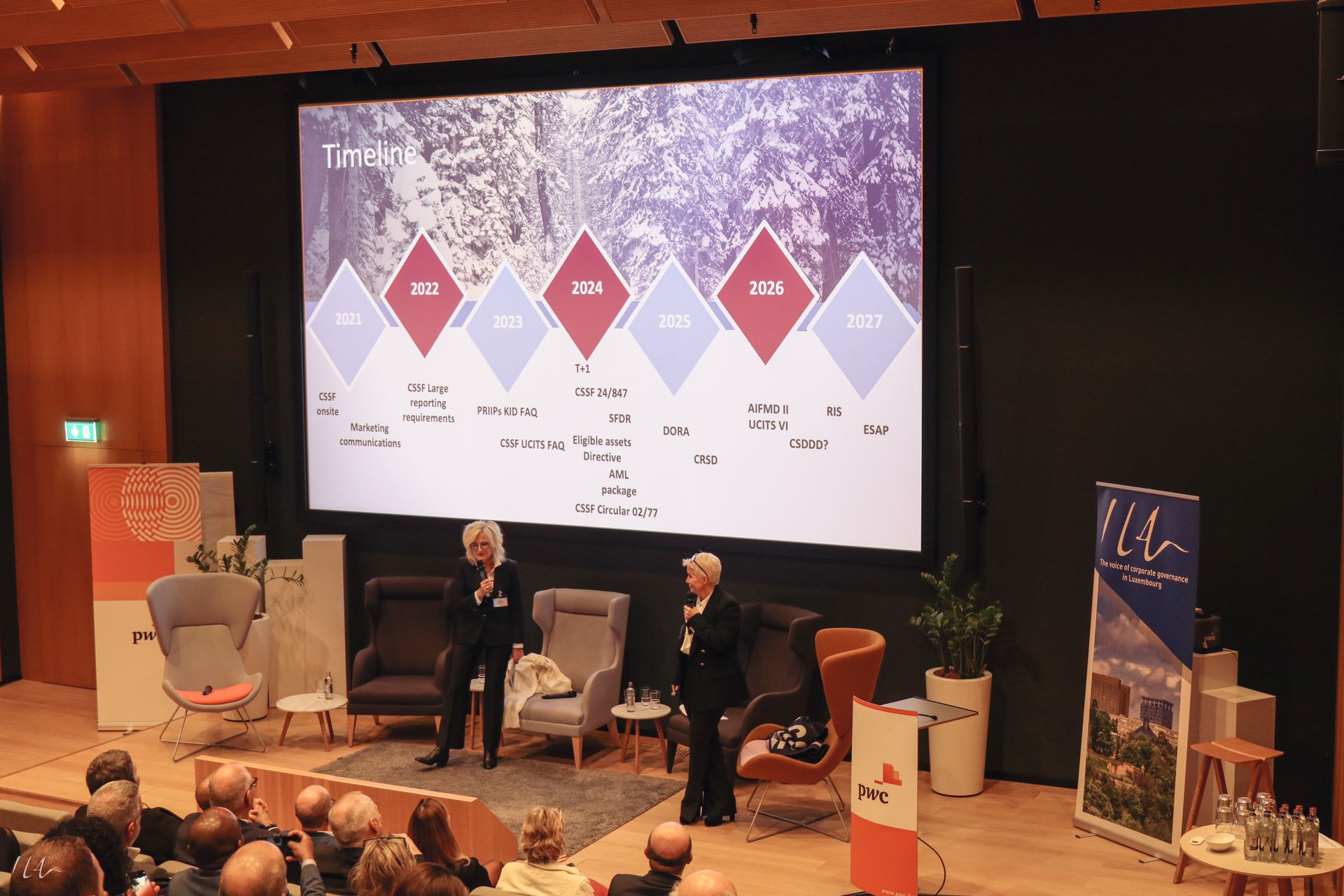How should boards work to ensure that ESG principles are integrated into funds in ways that satisfy investor and regulatory demands? A panel of experts agreed that, at least, directors need to be equipped to analyse the processes that are being created to achieve these ends.
Asset manager expectations
Claire Collet, CEO of UBP Asset Management, highlighted her firm’s approach when selecting fund directors. “We expect our board to be engaged, to seek explanations, and to make changes,” she said, noting that managers in their investment team had joined ManCo boards to ensure embedded ESG expertise. She characterised ESG knowledge as a “must-have” for boards. She also discussed a recent CSSF ESG inspection which added even greater focus to addressing the ESG challenge.
“Over the last two or three years I have seen a real positive evolution in understanding of ESG,” said Jane Wilkinson who was previously a KPMG consultant and is now an independent director. “There’s widespread competence regarding disclosures, data preparation, product strategy, etc.,” she said. However, she still sees room for improvement.
How non-specialists can act
Ms Wilkinson recommended that non-ESG specialists “focus on processes and controls, how data is sourced and who's looking at the quality of the information. You don't need to be an expert on SFDR to do this. Asking about the detailed specifics of changes to one or other ESG metric is probably not a director’s responsibility.”
The panel agreed that these processes can often be more of an art than a science, but even if data is incomplete or lacking compatibility, then clear oversight efforts still need to be made. For example, that a fund is using data from a reputable third-party provider does not absolve directors from conducting due diligence on this provider, with this work needing to be documented.
The panel suggested that directors need to gain greater awareness of where their oversight efforts should be focused. Ms Wilkinson highlighted the PwC ESG podcast series and the University of Luxembourg’s Certificate in Sustainable Finance as options for helping to gain greater knowledge and perspective.
Trustworthy public statements
At the moment, it is not always common practice for funds to have their ESG declarations audited externally. “Why is this and will this change?” asked Geoffroy Marcassoli, partner at PwC Luxembourg who was chairing the session. “We don’t yet have consensus in the market,” noted Kenny Panjanaden who is also a partner at PwC. “Yet indicating that the ESG section of the report is not audited does not discharge the board from responsibility,” he said.
“You have to go through the methodology, through the processes, to ensure that you're comfortable,” he said. He added that the cost of not making these checks would be outweighed by damage to reputations from making potentially misleading public statements. Others noted that it might not be appropriate to introduce the audit process before systems have had time to mature.
Ms Wilkinson warned of
the danger of over-promising to clients. “Be careful not to oversell certain strategies
to clients, as this can lead them to believe they're getting something that
they are not. Understanding the risk from potential accusations of greenwashing
is where directors really need to focus,” she said.



